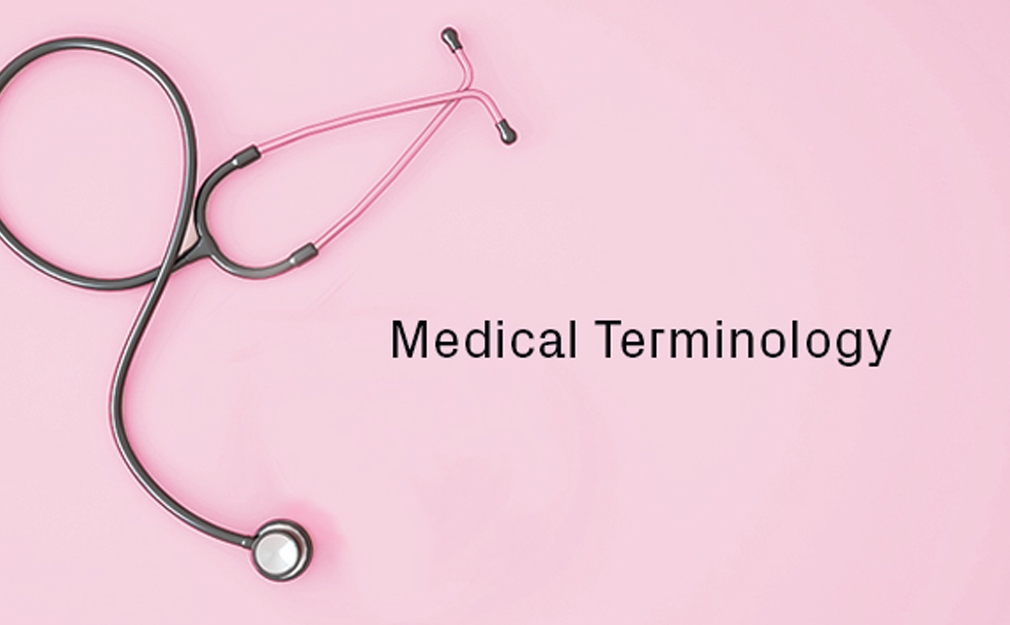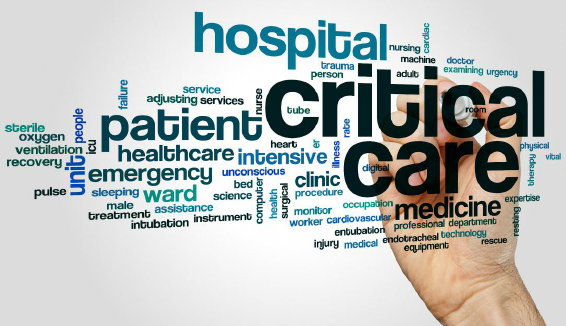
What is Medical Terminology?
Medical terminology is a system of words that are used to describe specific medical aspects and diseases its a language used to precisely describe the human body including its components, processes, conditions affecting it, and procedures performed upon it. The roots, prefixes and suffixes are often derived from Greek or Latin, and often quite dissimilar from their English-language variants.
Medical terminology is also employed when describing diseases or procedures. As an example, review acute pancreatitis in the posterior portion of the organ.
The root (pancrea-) indicates the organ of involvement, the pancreas. The suffix (-itis) indicates an inflammation. Acute denotes a rapid onset, as contrasted to chronic which is of long duration. Posterior refers to the portion of the pancreas that is to the rear of the body. This portion of the organ is also called the head of the pancreas.
This illustrates another important aspect of medical terminology, that there is frequently more than one way to accurately describe a location or structure.
What is the Importance of Medical Terminology?
Medical terminology allows all medical professionals to understand each other and communicate effectively where everyone understands what a condition, medicine, or procedure is, they are able to fulfill their roles accordingly, whether that is delivering medicine or billing for a medicine.
Where does the Medical terminology comes from?
Medical terminology originated during the Renaissance when the discipline of anatomy begin. Practicing in Italian medical schools, early anatomists and physicians used Latin to describe various parts of the anatomy. These naming conventions have remained in place to current day all the medical professional are using presently to communicate effectively in their field.
Important Medical Terms You Need to Know
These medical terms will keep you informed not only in daily conversation but in situations when they matter most word cloud of medical terms.
Have you and your family ever been suffer from any illness and hospitalized Of course you heard these terms but maybe that time you don't know these terms.
Have you ever been watching a live sporting event when an athlete suddenly left the game due to injury? Of course you have. The media coverage goes to commercial and at the first glance of a medical update, the sports broadcaster is back on live TV saying something about a “contusion” or “abrasion.”
One of two things usually happens from there. One, you may think it’s ridiculous that the media referred to a bruise as a contusion, or a scrape as an abrasion. Two, this may actually pique a desire in you to learn some medical vocabulary. For most of us, it’s probably the first.
It's helpful to know commonly used medical terms, so I compiled a list of 25 that will surely get help you out next time you’re at the doctor’s office.
Top 25 medical terms to know
Benign: Not cancerous
Malignant: Cancerous
Anti-inflammatory: Reduces swelling, pain, and soreness (such as ibuprofen or naproxen)
Body Mass Index (BMI): Body fat measurement based on height and weight
Biopsy: A tissue sample for testing purposes
Hypo-tension: Low blood pressure
Hypertension: High blood pressure
Lesion: Wound, sore, or cut
Noninvasive: Doesn’t require entering the body with instruments; usually simple
Outpatient: Check in and check out the same day without admission
Inpatient: Plan to stay overnight for one or more days with hospital admission
In remission: Disease is not getting worse; not to be confused with being cured
Membrane: Thin layer of pliable tissue that serves as a covering or lining or connection between two structures
Acute: Sudden but usually short (e.g. acute illness)
Angina: Pain in the chest related to the heart that comes and goes
Gastroesophageal Re-flux Disease (GERD): Heartburn
Cellulitis: Inflamed or infected tissue beneath the skin
Epidermis: Outermost layer of skin
Neutrophils: Most common type of white blood cell
Edema: Swelling
Embolism: Blood clot
Sutures: Stitches
Polyp: Mass or growth of thin tissue
Compound fracture: Broken bone that protrudes through the skin
Complicated fracture: Broken bone that shatters into many pieces
Next time you hear one of these terms— Hospitals whether on TV, in a medical environment, or elsewhere—you won’t miss a beat. Just beware, you may be asked to translate for others.
Conclusion- A working knowledge of medical terminology is an absolute necessity for success in any of the medical sciences and It is highly useful for individuals who interact with medical professionals.
Thanks for the attention will try to update you more medical terms in next article.
Written By:
Priyanka Massey
Certified Infection Control Nurse
Professional Trainer
Ingenious Healthcare Consultants Pvt.Ltd.

thanks for the feedback..
ReplyDeleteWow great info
ReplyDelete